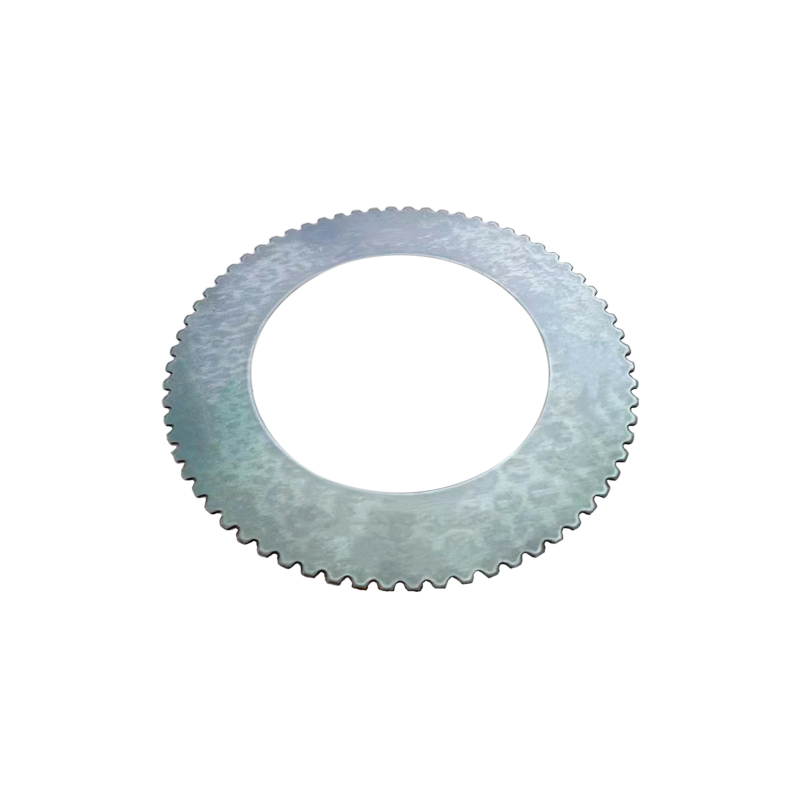Home / News / Industry News / How does the condition of the friction discs affect the efficiency of the wheel loader's transmission system?
Transmission Engagement: Friction discs are pivotal components within a wheel loader's transmission system, serving as the primary mechanism for transferring power from the engine to the wheels. Their condition significantly influences the engagement process, directly impacting the loader's overall efficiency and performance. When friction discs are worn or damaged, their surface area may decrease, or their material integrity may be compromised. As a consequence, the engagement process becomes inadequate, leading to power loss during transmission. This inefficiency hampers the effective transfer of energy to the wheels, ultimately reducing the loader's overall efficiency.
Smooth Shifting: In addition to facilitating power transfer, friction discs play a crucial role in ensuring smooth gear shifting within the transmission system. When the operator selects a gear, the friction discs engage to transfer torque seamlessly between gears. However, if these discs are worn or damaged, they may fail to provide sufficient friction, resulting in rough or delayed shifting. This not only affects the operator's experience but also leads to inefficiencies in power delivery. Rough shifting can accelerate the wear of other transmission components, necessitating premature maintenance or replacement.
Traction Control: Maintaining proper traction is essential for the efficient performance of a wheel loader, particularly in challenging operating conditions such as uneven terrain or heavy loads. Friction discs are instrumental in regulating power distribution between the wheels to ensure optimal traction. However, worn friction discs may impede the effective transfer of power, resulting in reduced traction and compromised stability. This not only decreases productivity but also poses safety hazards, especially in demanding work environments.
Overheating Prevention: Effective friction between the discs is essential for preventing excessive heat buildup within the transmission system. Worn or damaged friction discs may exhibit reduced frictional properties, leading to increased heat generation during operation. Elevated temperatures can degrade lubricants, compromise seal integrity, and accelerate wear on other transmission components. Over time, this can result in decreased efficiency, heightened maintenance costs, and potential system failures, underscoring the critical role of well-maintained friction discs in overheating prevention.
Fuel Efficiency: Optimizing fuel efficiency is a priority for any wheel loader operator, and the condition of friction discs directly influences this aspect. A well-maintained transmission system, supported by properly functioning friction discs, facilitates efficient power transfer from the engine to the wheels. This minimizes energy losses and reduces the amount of fuel required to operate the loader. Conversely, worn or damaged friction discs lead to energy losses and inefficiencies in power transmission, resulting in increased fuel consumption and decreased overall fuel efficiency over time.
Overall Performance: The condition of friction discs significantly impacts the overall performance of the wheel loader. A transmission system with properly maintained friction discs operates smoothly, ensuring seamless power delivery and responsive performance. In contrast, worn or damaged friction discs compromise the efficiency, reliability, and productivity of the loader, leading to decreased performance and increased downtime for repairs or replacements. Therefore, prioritizing the maintenance and timely replacement of friction discs is essential for maximizing the longevity and performance of the wheel loader.
Wheel Loader Gearbox Forward Active Friction Disc Clutch Plate



 English
English 中文简体
中文简体 Español
Español ++86 13567131698
++86 13567131698










